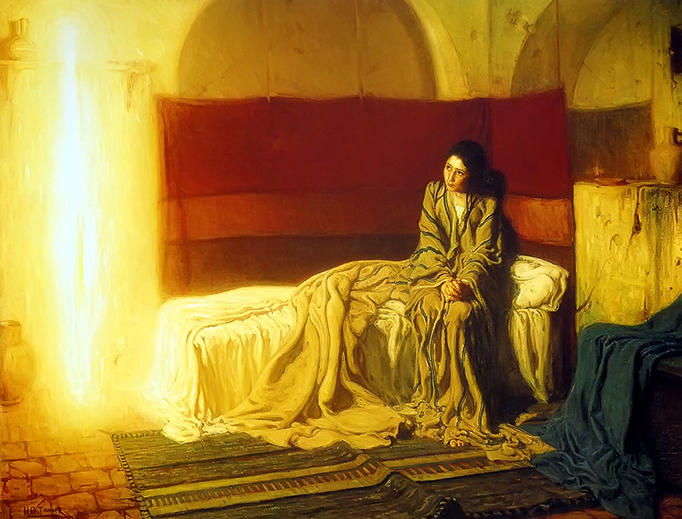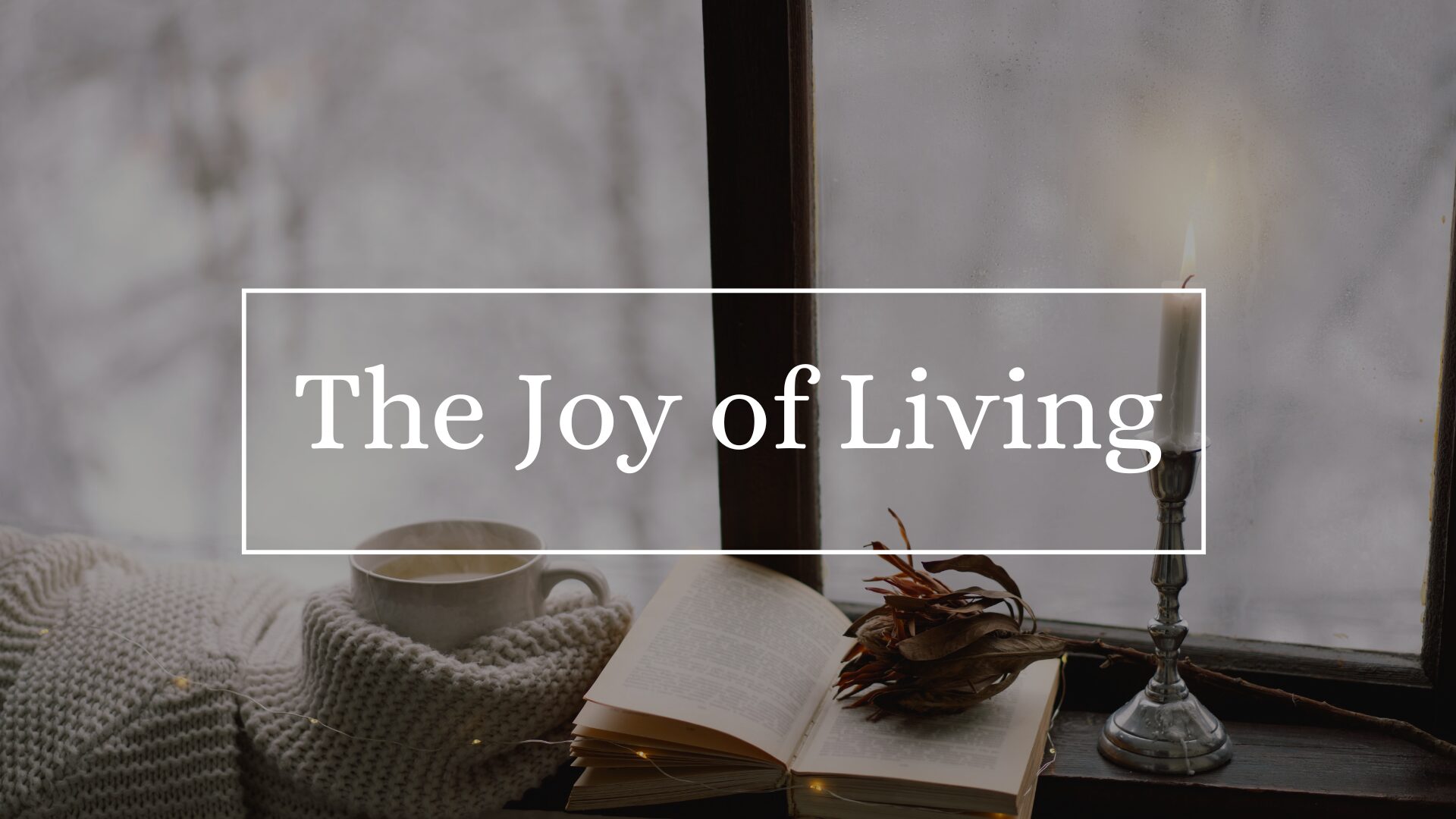What do you think joy is?
We heard from the kids. It was pretty clear that joy was connected to happiness for them. Is there anything that you could add to that?
I think joy is more than happiness. I think it’s different, even, than happiness. It’s connection, love, being home, a big smile, something that can be found, the feeling after helping someone and the absence of fear.

I don’t know how many of you have seen Inside Out. Inside Out’s a cute Pixar movie about the emotions that go on within us. They’re animated and that is a picture of Joy. Joy is just happiness on steroids. And part of the storyline is that Joy tries to run this little girl’s life, and she finds that the little girl is absolutely miserable because Joy won’t let her experience anything else except ultimate joy.
That’s not the way life is. You know, when someone hurts you, your feeling is not joy like that. The little girl on the right also can have joy, but is expressing it very differently.
When I think about joy, joy is a deeper emotion for me. It’s not just about being happy.
There’s connection and it involves doing something for someone else. It involves something that makes us feel like home. Something that is deeper, that we can find within us. Not something exterior, but something interior. Happiness is a feeling about us. You can be happy because you have a bowl of ice cream, but that’s not this deeper joy.
The deeper joy often comes from doing something selfless. Something that’s directed towards someone else. You can be grateful because you can help someone and it’s not all about us. Whereas, I think happiness is very self driven. Very, “this is what makes me happy.” But, this is what gives me joy, when I’m doing things for others, and when I’m focused on somebody other than myself.
I think that’s how Joy ties in to Philippians 4:4-7. Think about how is this directing us?
“Love one another with mutual affection; Outdo one another in showing honor. Rejoice in hope; be patient in affliction; persevere in prayer. Contribute to the needs of the saints; practice hospitality to strangers. Bless those who persecute you. Rejoice with those who rejoice and weep with those who weep.” – Philippians 4:4-7 Abbreviated.
Is that about us or is that about others? To me, that’s about others. It’s about the experience of others. Although prayer could be about us too, right?
Now I want to talk about Luke 1:26-38 which sets us up for Mary and trying to understand who Mary was. That’s part of our challenge today.
If we look at the scripture, it doesn’t really give us a lot. It tells us that she was young, but young was of marrying age at that time. It tells us that she was engaged or promised. I almost hate using the word engaged, because when we think about engagement, we think about two people who have found each other and love each other and whereas promised, I think gets a little bit closer to what relationships were still like at that time. Marriages were still more contractual. Love probably wasn’t involved. But at that time, that wasn’t as important as having a male heir to inherit what one has, leave one’s legacy, one’s name, those kind of things.

We know also that Mary has a cousin, Elizabeth. Elizabeth is the one that she runs to after this encounter with the angel Gabriel. Whether that’s because she wants to have somebody to talk about this experience with, someone that might understand. But, it also raises questions because there’s an absence of information.
Quite a few years ago, I did a sermon from Mary’s perspective, and I wrote it that Mary’s parents were not pleased. They were not keen on this whole, “I’m pregnant by the Holy Spirit” piece. But, this week I heard two ideas. They’re just things to help us open our minds.
One said that Mary was an orphan. I never thought about that. But, maybe that’s why there’s no mention of Mary’s parents. Maybe Mary didn’t have parents. We don’t know that. We don’t know why Mary was alone and went only to her cousin. We don’t know.
It was an imperfect situation with Mary. She’s young. She’s not married. This could really mess her up. But, she also is a person of faith. So, she does say yes. That was the other piece that I read, was that it had to be a woman who wasn’t married yet, unlike Elizabeth. Because a woman who’s married at that time would have had to ask her husband for permission before she said yes.
I think that’s a powerful piece that we don’t think about. A woman at that time would not have been able to make that decision on her own. But Mary was. And Mary did have faith in God. Mary did believe. And if Mary was alone in the world, I could see where wanting to be loved and needing someone to love is a strong reason to say yes to something that others would say is crazy.
Would you say yes if an angel came to you tonight and told you that you could become pregnant? Males, how would you feel if your wife came to you and said, “the spirit has come to me and told me that I’m going to bear a child.” That’s not an easy thing to put your mind around.
But I remember being a teenager who felt alone, who needed to be loved, who needed someone to love. When we look at our teenagers, we need to be thinking that way, too.
We need to make sure that they feel loved. That they feel accepted for who they are and remind them that they are children of God. That God loves them just as much as God loves everyone else.
So, Mary said yes. Mary said yes to living because living doesn’t mean it’s going to be all happy and joyful. The joy of living means going through the hard stuff, but knowing that you don’t go through it alone. Even if you physically appear to be alone, God is with you. The spirit is with you and it takes an inner sense of knowing. Looking deeper than the physical circumstances around us to know that, but it is in knowing that where we can find joy.
We’re living through an interesting time where there’s a lot of people who are not feeling joy right now. There is a lot of fear, a lot of worry and anxiety about the future on many levels in many different ways.
We are called to be that light and to share that joy that we know that comes from our relationship with Christ. We are called to be the light in the darkness right now.

I was in two rooms with people near death, and I was in conversation with someone. Who is telling me that if this one thing doesn’t happen, then life isn’t worth living. I’m trying to say, there is more to living.
This one thing may not work out, no matter how hard you pray. And they are praying with all their might. But sometimes we have to just rest in the joy of knowing that we are loved because life has hard spots and we are called to be the light in the darkness.



